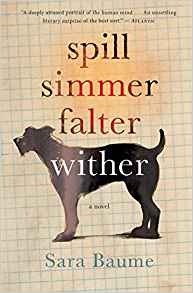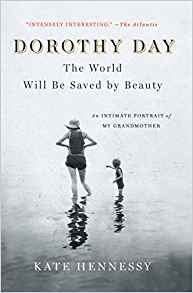For Sunday December 31, 2017
Lectionary Readings (Revised Common Lectionary, Year B)
Psalm 148
Galatians 4:4–7
Luke 2:22–40
"When I have a little money," said the Renaissance humanist and Catholic priest Erasmus of Rotterdam (1466–1536), "I buy books; and if I have any left, I buy food and clothes."
It's that time of year for the most subjective of exercises — my ten favorite books of 2017. Truly, there's no accounting for personal taste. For some reason, as I've noted before, I read comparatively little fiction, although this year I include four novels. I always enjoy "reviewing our reviews" of the past year.
Please note that you can search JwJ's Comprehensive Index of 750 book reviews alphabetically by author, or by fourteen different subject categories like history, art, economics, etc. And if you ever get stuck, just use the "search" button that you'll find in the top right corner of every JwJ page.
The hot-linked titles will take you to my full book review.
Merry Christmas, and happy reading!
Sara Baume, Spill Simmer Falter Wither (New York: Houghton Mifflin Harcourt, 2015), 274pp.
This debut novel by the Irish writer Sara Baume has won numerous awards for its portrayal of the love between two deeply wounded creatures — a misanthropic recluse named Ray and his abandoned and abused dog One Eye (so named for a wound from a badger). What really drives the novel is its delightfully strange narrative device, a 274-page second person soliloquy by Ray to One Eye, in which he unburdens himself of his many hurts….
Paul Beatty, The Sellout; A Novel (New York: Picador, 2015), 289pp.
Paul Beatty won the 2016 Man Booker Prize (the first American to do so) for this bombshell of a book that was initially rejected by eighteen publishers. His scorched earth satire about race questions every stereotype and cultural assumption imaginable. It breaks every politically correct boundary that you ever feared transgressing. Nobody gets a free pass here, not "Condi Rice lying thru the gap in her teeth," not "Dave Egger's do-gooder condescension," not gang bangers, not "stupid, fat, ugly, white Republicans." And it's all laugh-out-loud hilarious….
 |
Richard Ford, Between Them: Remembering My Parents (New York: Ecco, 2017), 179pp.
In an age when so many memoirs rely upon a narrative of human wreckage, Richard Ford's affectionate memoir about his parents is a blast of fresh air. It's actually two separate pieces that were written thirty years apart. "Gone: Remembering My Father: (pp.1–87) was written recently, over fifty years after his father died from a second heart attack at the age of fifty-five, when Ford was only sixteen. "My Mother, In Memory" (pp. 91–163) was written soon after she died in 1981….
Kate Hennessy, Dorothy Day: The World Will Be Saved by Beauty; An Intimate Portrait of My Grandmother (New York: Scribner, 2017), 372pp.
In the "Acknowledgements" at the end of this book, Kate Hennessy (b. 1960) says that it took her five years to write this family memoir about her "paradoxical grandmother" Dorothy Day (1897–1980), her many "complexities and contradictions," and in particular the deeply complicated mother-daughter relationship between Day and her only child Tamar (1926–2008). Well, it was worth the wait….
Stefan Hertmans, War and Turpentine: A Novel (New York: Pantheon, 2016), 290pp.
A few months before he died in 1981 at the age of ninety, First Sergeant-Major Urbain Joseph Emile Martien, an artist and decorated veteran who served on the front lines in World War I, gave his grandson Stefan Hertmans two notebooks. At the age of seventy-two, almost fifty years after the war, Urbain had started to record his experiences of the Great War. He wrote for seventeen years — six hundred pages of memories….
Hisham Matar, The Return; Fathers, Sons and the Land in Between (New York: Random, 2016), 243pp.
This memoir by the Libyan writer Hisham Matar (b. 1970) begins about seven months after the fall of Tripoli and the Gaddafi dictatorship in August of 2011. In March of 2012, Matar and his wife Diana returned to Libya for the first time in thirty-three years, since his family had left when he was eight years old. At the age of fifteen, Matar packed off to boarding school in England, where he lived for the next twenty-nine years. No one at that time expected the grim and chaotic future that awaited Libya not long after — it was a period of patriotic optimism during the Arab Spring….
 |
Dani Shapiro, Hourglass: Time, Memory, Marriage (New York: Knopf, 2017), 145pp.
Toward the end of Dani Shapiro's poignant reflections about twenty years of marriage, she recalls a conversation with her aunt who told her that she "once had a terribly difficult period that lasted twenty-four years. And it was so important to realize that I didn't know what was on the other side of the darkness. Every so often there was a sliver of light that shot the whole world through with mystery and wonder, and reminded me: 'I didn't have all the information.'"….
Colson Whitehead, The Underground Railroad, A Novel (New York: Doubleday, 2016), 306pp.
Colson Whitehead (born 1969) has earned a MacArthur Grant, a Guggenheim Fellowship, and was a Pulitzer Prize finalist for his previous five novels and two works of non-fiction. His newest book about a runaway slave named Cora was a selection for Oprah's Book Club, has been short-listed for numerous "book of the year" lists, and nominated for a National Book Award….
Helen Wilcox, editor, George Herbert: 100 Poems (Cambridge: Cambridge University Press, 2016), 174pp.
George Herbert (1593–1633) died at the age of forty almost four hundred years ago. As the public orator at Cambridge University, he was, as editor Helen Wilcox notes, "one of the most accomplished rhetoricians of his generation." He hailed from an aristocratic family. And yet even today there's a broad consensus among scholars and non-experts alike that he's one of the greatest devotional poets of the English language….
David Wood, What Have We Done; The Moral Injury of Our Longest Wars (New York: Little, Brown and Company, 2016), 291pp.
There are about two million American veterans who have returned home from fighting our wars in Iraq and Afghanistan. Many of them come back with horrible physical injuries. Others, we now realize, need help with psychological trauma like PTSD. David Wood's new book examines a "dark truth" about war that is largely ignored and rarely addressed, much less treated — that many veterans come home with moral injuries or "wounds of the soul" that are related to but different from physical and psychological wounds….





